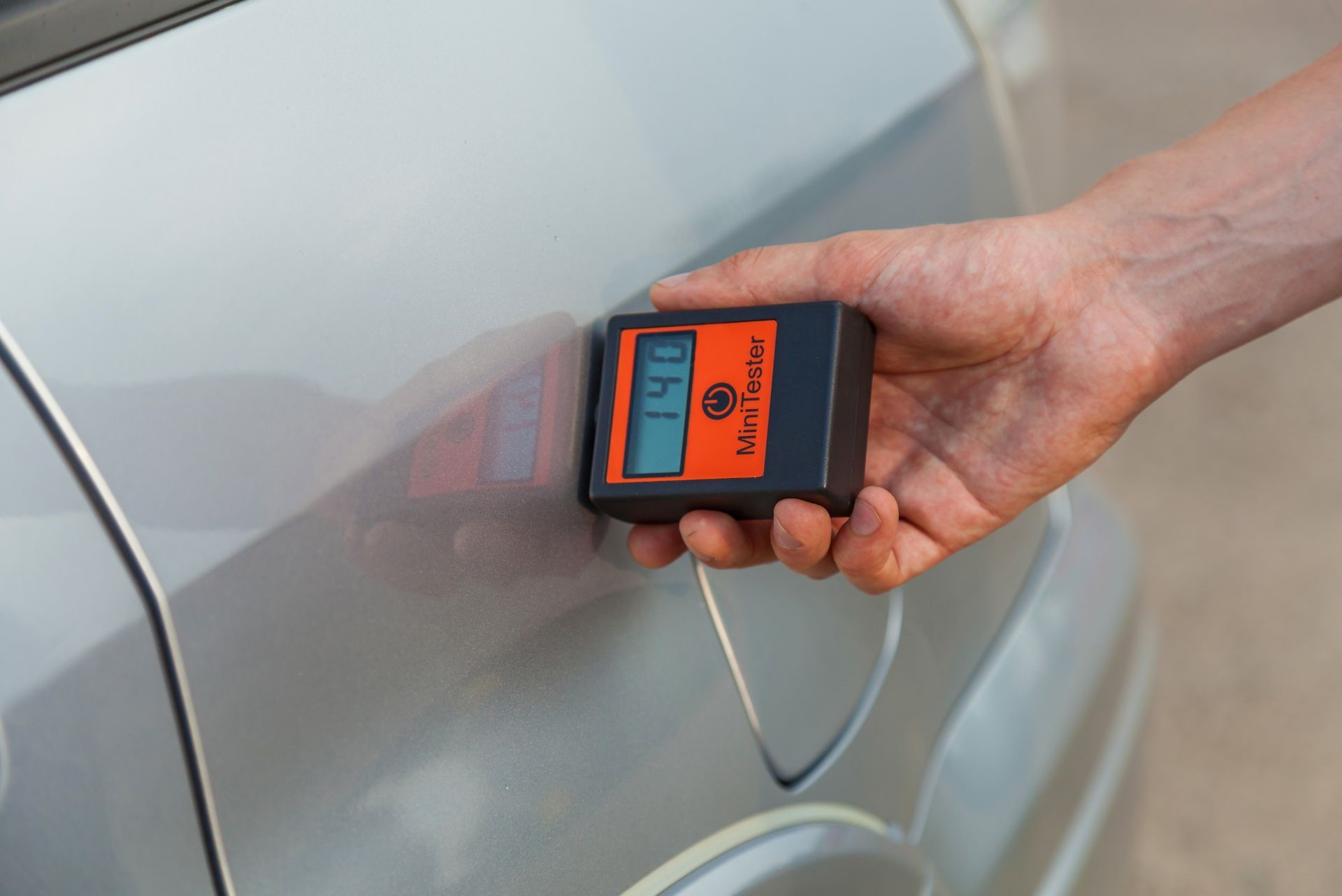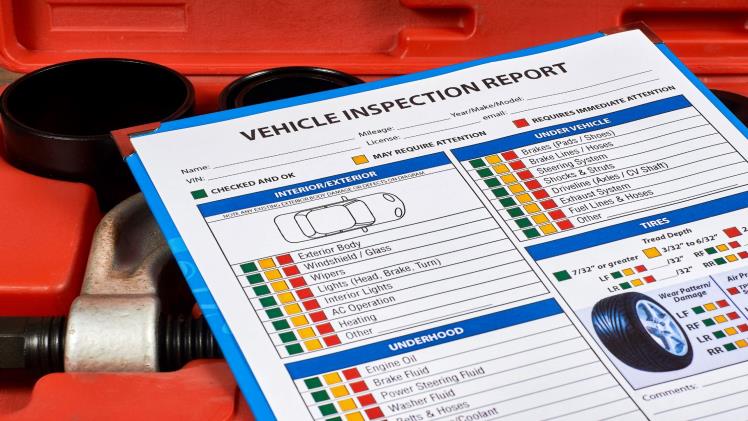Purchasing a car is not just an ordinary transaction—it’s an investment that deserves careful consideration. Whether you’re a first-time buyer or a seasoned car enthusiast, finding the right vehicle requires more than just a quick test drive and a glance under the hood. That’s where the power of a comprehensive pre-purchase car inspection comes into play.
Imagine this: you’ve got your eyes on a stunning second-hand beauty. The glossy exterior and plush interior make your heart skip a beat. But appearances can be deceiving, and there may be a hidden world of issueshidden from your eyes. This is where a pre-purchase car inspection becomes your trusted ally, armed with knowledge and expertise to uncover any potential problems.
Think of it as a thorough health check-up for your future ride. Just like you would consult a doctor before committing to a major decision, a pre-purchase car inspection brings in professional mechanics or inspectors who thoroughly check every aspect of the vehicle. From the mechanical components to the electrical systems, and even the subtlest cosmetic details, nothing escapes their experienced eyes.
In this blog post, we will discuss everything you need to know about pre-purchase car inspections and their importance in the car-buying process. Stay still the end for valuable insights!
Importance of Pre-Purchase Car Inspections
Uncovering Hidden Problems:
When considering purchasing a used car, it’s crucial to recognise that hidden issues may exist, which may not be apparent during a casual inspection or test drive. This is where a pre-purchase car inspection plays a vital role.
By opting for such an inspection, you can uncover underlying mechanical problems, such as engine issues, transmission problems, suspension damage, or frame damage, which would otherwise remain hidden. This proactive approach can potentially save you from significant expenses on repairs down the road.
Used cars often come with a certain level of wear and tear, and some sellers may attempt to hide or downplay existing issues. Without a professional inspection, it’s challenging for a regular buyer to spot these problems. However, a trained mechanic conducting a pre-purchase inspection has the expertise to identify potential red flags.
During the inspection, the mechanic thoroughly examines the vehicle’s engine, transmission, suspension, and frame. They check for signs of damage, leaks, or irregularities that may indicate underlying problems. By inspecting these crucial components, the inspector can provide an accurate assessment of the vehicle’s condition.
Identifying these issues early on not only gives you a clearer picture of the car’s condition but also provides you with an upperhand in negotiations. equipped with the inspection report, you can discuss the necessary repairs or issues with the seller and potentially negotiate a lower price to account for the cost of fixing these problems.
Negotiating Power:
When it comes to pre-purchase car inspections, knowledge truly is power.
Imagine this: armed with an in-depth inspection report, you confidently advance into negotiations with the seller. The inspection has revealed a few issues and necessary repairs that were hidden under the hood. But instead of feeling defeated, you see an opportunity to use this knowledge to your advantage.
With the inspection report in hand, you engage in a conversation that could potentially save you some serious cash. You politely discuss the identified issues with the seller, highlighting the repair costs that may slip out from your pocket.
As you present the inspection findings, you emphasise that the asking price should reflect the repairs needed. After all, why should you bear the burden of these unexpected expenses? The inspection report serves as your ally, providing strong evidence that supports your case for a reduced price.
The seller, faced with the reality of disclosed issues, may be more inclined to negotiate. They understand that an informed buyer won’t settle for an unusual price when there are repairs to be made. It becomes a game of give and take.
By confidently showing the inspection report, you demonstrate your commitment to a fair and transparent transaction. It shows that you’ve done your due diligence and are not willing to overlook any potential problems. The seller, recognising your preparedness, is more likely to respect your position and work towards finding common ground.
In the end, it’s a win-win situation. You walk away with a price that reflects the true condition of the vehicle.
Peace of Mind:
Buying a used car can be a exhausting process, filled with uncertainties. A pre-purchase car inspection provides peace of mind by giving you a professional evaluation of the vehicle’s condition. It allows you to make an informed decision and minimises the risk of purchasing a lemon.
What Does a Pre-Purchase Car Inspection Cover?
The exact scope of a pre-purchase inspection may vary depending on the inspection service or mechanic. However, it generally includes the following:
Exterior Inspection:
During an exterior inspection, a professional evaluates various aspects of the vehicle’s exterior.They thoroughly examine the bodywork for any signs of damage, including dents, scratches, or paint chips.

The condition of the paint is assessed for fading, peeling, or mismatched colors, indicating possible previous repairs. Signs of rust or corrosion are scrutinised, as they can indicate long-term damage.
Tire condition is checked, looking for tread depth and signs of uneven wear. Visible damage or evidence of accidents, such as misaligned panels or repaired bodywork, are also noted. This comprehensive evaluation helps determine the overall condition and potential issues with the car’s exterior.
Interior Inspection:
During an interior inspection, the cabin of the vehicle is thoroughly assessed. The seats, dashboard, and controls are examined for any signs of wear, damage, or malfunction.
The condition of the upholstery, including tears, stains, or odors, is evaluated. Additionally, the functionality of various features and accessories such as the air conditioning, audio system, and navigation is checked.

The inspector ensures that all buttons, switches, and knobs are in proper working order. This detailed examination of the interior components provides valuable insights into the overall condition and usability of the car’s interior, allowing potential buyers to make informed decisions.
Mechanical Inspection:
During a mechanical inspection, a comprehensive assessment of the vehicle’s vital mechanical components is conducted. The engine is thoroughly inspected for any signs of leaks, worn-out belts or hoses, and overall condition.
The transmission is checked for smooth shifting and any indications of potential issues. The brakes are examined for wear, proper function, and the presence of any unusual noises. The suspension and steering system are inspected for signs of wear or damage, including loose or worn-out components.
The exhaust system is examined for leaks, rust, or damage that could affect performance and emissions. The inspector also pays attention to the overall performance of the vehicle, including acceleration, idle, and engine responsiveness. Any unusual noises, vibrations, or warning signs are noted and investigated further.
This in-depth mechanical inspection helps identify potential problems, hidden issues, or signs of poor maintenance, giving buyers a clear understanding of the car’s mechanical condition before making a purchase decision.
Electrical Inspection:
During an electrical system inspection, the vehicle’s electrical components are thoroughly tested to ensure proper functionality. The battery is checked to verify its charge and overall condition. The lights, including headlights, taillights, brake lights, and indicators, are tested to ensure they illuminate correctly.
The inspector also checks the functionality of power windows, verifying if they operate smoothly and without any issues. The central locking system is examined to ensure that all doors lock and unlock as intended. Other electrical components such as the horn, wipers, air conditioning, audio system, and navigation are tested to confirm their proper operation.
The inspector also pays close attention to any signs of electrical malfunctions, such as flickering lights, non-functional switches, or blown fuses. Any abnormalities in the electrical system are noted, as they can indicate potential wiring issues or electrical failures.
Test Drive:
A test drive is an essential step in the inspection process, providing valuable insights into the vehicle’s performance, handling, and responsiveness on the road. It allows the mechanic or potential buyer to experience firsthand how the car behaves in various driving conditions.
During the test drive, the mechanic pays attention to several factors. They assess the engine’s power and acceleration, checking for smooth operation and any signs of hesitation or unusual noises. The transmission is evaluated for smooth shifting and responsiveness. The brakes are tested for effectiveness and any vibrations or squealing sounds.
Handling and suspension are examined by maneuvering the vehicle through turns, bumps, and uneven surfaces. The steering responsiveness and alignment are evaluated to ensure the car tracks straight and responds predictably.
Additionally, the mechanic may test various features such as the air conditioning, heating system, audio system, and navigation to ensure their proper functioning.
The test drive provides an opportunity to gauge the overall driving experience and identify any potential issues that may not be apparent during a stationary inspection. It helps potential buyers make an informed decision and ensures they are satisfied with the vehicle’s performance before finalising the purchase.
Choosing an Inspection Service
When selecting an inspection service or mechanic, consider the following factors:
Qualifications and Experience:
When choosing an inspector or mechanic for a pre-purchase car inspection, it is crucial to ensure they possess the necessary qualifications, experience, and knowledge related to the specific make and model of the vehicle you are interested in.
Experience plays a significant role in an inspector’s ability to identify potential issues and accurately assess the condition of the vehicle. Look for inspectors who have a proven track record of conducting thorough inspections and who specialise in the specific make and model of the car you intend to purchase. They should be familiar with the common problems associated with that particular vehicle and know what areas to scrutinise during the inspection.
Knowledge about the specific make and model is essential to ensure that the inspector can effectively evaluate the unique features, components, and potential weaknesses of the vehicle. They should be up-to-date with the manufacturer’s specifications, technical bulletins, and any recalls or known issues related to the car.
By selecting a qualified, experienced, and knowledgeable inspector or mechanic, you can have confidence in the thoroughness and accuracy of the pre-purchase inspection, helping you make a well-informed decision about the vehicle.
Comprehensive Inspection:
Before scheduling a pre-purchase car inspection, it is important to confirm that the inspection service covers all the essential aspects mentioned earlier, including the exterior, interior, mechanical components, and electrical system. A comprehensive inspection should encompass a thorough evaluation of the bodywork, paint condition, signs of rust or corrosion, tire condition, seats, dashboard, controls, upholstery, engine, transmission, brakes, suspension, steering, exhaust system, and the functionality of various electrical components.
In addition to covering these aspects, it is crucial to ensure that the inspection service provides a detailed written report of their findings. The report should include a comprehensive assessment of the vehicle’s condition, highlighting any issues, potential problems, or areas that require attention. It should be clear, concise, and include photographs or supporting documentation whenever necessary.
A detailed written report allows you to have a complete understanding of the vehicle’s condition and make an informed decision based on the inspector’s findings. It serves as a valuable reference and documentation for future reference or negotiations with the seller.
By confirming that the inspection service covers all the essential aspects and provides a detailed written report, you can ensure that you receive a thorough and comprehensive evaluation of the vehicle’s condition, enabling you to make a well-informed decision about your potential purchase.
Reputation and Reviews:
When considering an inspection service, it is wise to read reviews and testimonials from previous customers. Checking their reputation and reliability is essential in ensuring a trustworthy and competent inspection.
Reading reviews allows you to gauge the experiences of others who have used the service. Look for reviews on reputable platforms or websites dedicated to car inspections. Pay attention to feedback regarding the thoroughness of the inspection, the accuracy of the report, and the overall professionalism of the inspectors.
Testimonials from previous customers can also provide valuable insights into the inspection service’s reliability and customer satisfaction. These testimonials can give you an idea of the quality of their work, their ability to identify issues, and their level of expertise.
Also,consider seeking recommendations from friends, family, or online communities that have had experience with pre-purchase inspections. Their firsthand accounts can provide valuable insights and help you make an informed decision.
Cost:
When evaluating the cost of a pre-purchase car inspection, it is important to consider it in relation to the value of the vehicle you are interested in purchasing. While price should not be the sole determining factor, it is essential to strike a balance between the cost of the inspection and the potential benefits it provides.
A higher-priced inspection does not necessarily guarantee better quality, just as a lower-priced inspection does not guarantee a comprehensive evaluation. It’s important to research and compare the prices offered by different inspection services while also considering their reputation, expertise, and the level of detail provided in their reports.
If you are considering purchasing a high-value or luxury vehicle, investing in a more thorough and comprehensive inspection may be worthwhile. Conversely, for a lower-priced or older vehicle, you may opt for a more basic inspection that covers the essential components.
Ultimately, the cost of the inspection should be viewed as an investment in your peace of mind and confidence in the vehicle’s condition. Consider the potential risks of not conducting an inspection and the potential costs that may arise from hidden issues or repairs down the line.
Conclusion:
A pre-purchase car inspection is an invaluable step in the car-buying process. It provides you with a professional evaluation of the vehicle’s condition, helps you uncover hidden problems, gives you negotiating power, and ultimately offers peace of mind.
By investing in a pre-purchase car inspection, you can make an informed decision and increase your chances of finding a reliable and trustworthy vehicle.
Remember, a thorough inspection is worth every penny and can save you from potential headaches and costly repairs in the future. So, before finalising your next car purchase, be sure to prioritise a pre-purchase car inspection for a worry-free ownership experience.
If you are seeking a reliable and comprehensive car inspection Sydney team, look no further than GPS Vehicle Inspection. Their team covers the entire Sydney region, offering a one-stop-shop for all your pre-purchase car inspection needs.
With their expertise and commitment to thorough evaluations, they provide comprehensive inspections that give you confidence in your vehicle purchase decision.

